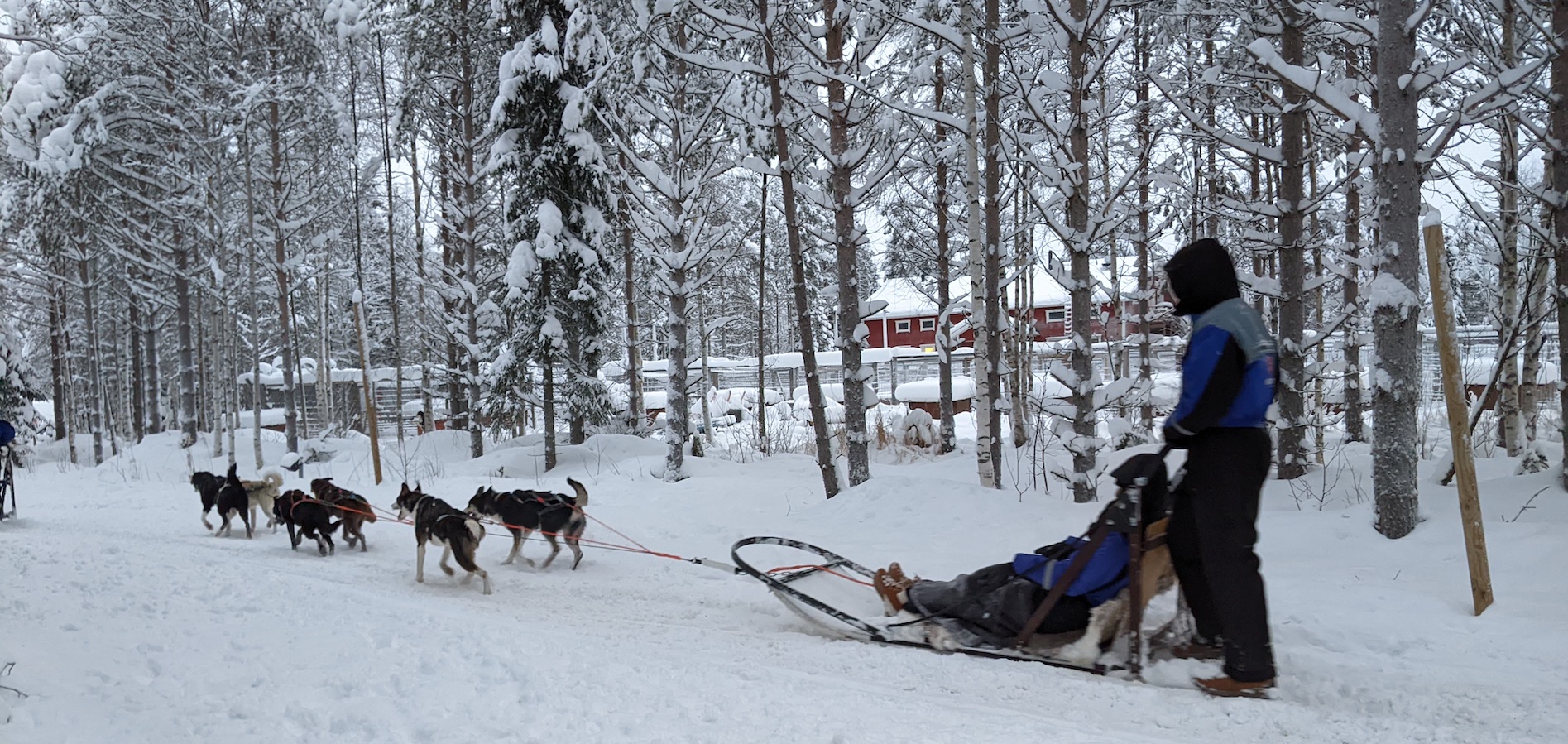Welcome
Thanks for visiting Expat Heather! I’m an international educator, writer, and expat mom currently living in South Korea. On this site you’ll find things about living abroad, teaching in international schools, travel, hiking, and expat life.
Last week I posted the first 5 Things I Learned Living Abroad, but there are definitely more.
6. How to Drive in Chaotic Conditions
I had thought the way people drive in Morocco was slightly insane (ie, passing 12 vehicles on a blind curve), but North African driving conditions seem tame compared to the subcontinent. One of my Pakistani friends told me, “It’s simple, just focus on what’s in front of you,” and that’s how pretty much everyone drives. Feel like swerving to the right in order to make a sudden right turn? No problem. The people behind you should expect this type of driving and adjust accordingly.
As my husband put it, driving in Pakistan is not so much rule-based as it is relationship-based. Instead of following a system of do’s and don’ts, you are interacting individually with each other driver on the road. This means you need to pay attention 100% of the time.
For over a year I avoided driving, but finally I decided I needed to learn. An expat friend served as my coach and helped me get used to driving on the other side of the road. After just a few minutes, she had me driving in one of the busiest areas of town. Sure I still put on the wipers instead of the blinkers every once in a while, but with practice I learned to be confident enjoy my daily commute.
7. How to Live with Shortages
Before living in Pakistan, I had no schema for “not enough water” or “not enough electricity.” In the US, I would naively just turn on the tap or the light switch and always expect appliances to work. Living abroad made me realize that there isn’t always enough electricity, water or natural gas to go around. At some points, our power was shut off by the government for up to 12 hours a day. This often happened during summer when it was 120 degrees and many people were using air conditioners.
Urdu phrases like “pani nahi a rahi hai” (water isn’t coming), “gas nahi a rahi hai” (gas isn’t coming), and “bijli chali gai” (electricity has gone) became essential parts of my vocabulary.
No water? Wash up using bottled water or from a bucket of tap water that was stored in case of shortages. No gas? Cook food in the microwave or have an impromptu date at a nearby restaurant. No electricity? Go grocery shopping, have a candlelight dinner or fill up the bathtub, put on a bathing suit and read a book in there until the AC comes back.
I can’t say we really “learned to live” with the power outages. The last six months I was in Pakistan I felt like an insomniac zombie woman. I couldn’t sleep at night due to the heat and our neighbors’ loud generators. Power shortages were the main reason we decided our time in Pakistan was nearing its end. If we ever move back, we’ll definitely buy a generator or UPS.
8. How to Cope with Political Turmoil
Mainstream news media, especially media outlets based in the US, present Pakistan as if it’s a country on the verge of implosion. Although what’s happening at a political level may be tumultuous, these changes don’t often affect what’s happening on the ground or have any relation to everyday life.
My husband and I were out for dinner with an expat friend when Musharraf declared a state of emergency. Some other foreigners were calling our friend in a panic and telling him he should rush home immediately. It was around 10pm, and we’d just been served fresh naan bread, delicious lamb handi and some steaming kebabs. The local diners all around didn’t seem worried at all and were continuing on with their evening in the Old City. We did the same.
The best way to deal with the constantly changing political scene was simply to follow the local news. If a riot was planned, we’d avoid that area of town for the day. If streets were blocked off (as they were when Benazir Bhutto decided to stay at a house in the same neighborhood as the school where we were working), we’d leave early and find alternate routes.
We always kept extra phone cards so we could add minutes to our mobiles if they ran out, and we’d check with local friends when the political situation became tense. Only a few times did we actually cancel our plans or stay home because of the political situation.
9. How to be Patient
As a native New Englander, I’m used to a fast pace of life. On the Myers Briggs personality scale, my most dominant trait is a “J”, meaning that I’m hyper organized and get frazzled when things don’t happen in a punctual manner. Living in Pakistan was a real challenge for me, as time was more relative and punctuality often nonexistent.
In the beginning of my time in Pakistan, I would get extremely frustrated when I was told something would be done on a certain day or time and it didn’t happen. I dropped off some material to get Pakistani clothes made with a tailor in Liberty Market, and after going back three times to find the clothes unfinished, I just gave up.
After being in Lahore for some time, I learned not to even attempt to pick up clothes at the tailor until a day or two after the day they were promised, and I’d always call ahead and check to make sure they were done. If I arrived and the clothes were frantically being finished, I’d have a book ready or I’d run out and do some other errands. I finally reached an agreement with my tailor that when my clothes were done, he would give ME a call and only then would I come pick them up and pay for them.
10. How to Expect the Unexpected
This one stems out of all the other things already mentioned. In Pakistan, I had much less control over my daily life than I did in the US. I had to be willing to subdue that super-organized part of my personality and not feel as if my day was “ruined” simply because my routine got all screwed up. Dealing with chaotic driving, shortages, lack of punctuality, certain ingredients not being available in the markets or classes being cancelled at the last minute due to riots helped me become less rigid and more flexible.
My husband would probably say that I’m still a bit of a “time Nazi” – and I do still get bent out of shape sometimes when my schedule is messed with – but I think living abroad has made MUCH more flexible and more able to adjust when unexpected things happen. I’m sure this lesson will be much appreciated when I become a mom!
Share Your Experiences!
What did you learn while living abroad? Did the experience help you learn to be more flexible?
With the average daily high in June at 103 degrees Fahrenheit, staying cool during frequent power outages takes some creativity. Living in Lahore, Pakistan from January 2006 to June 2009 has allowed me to experience and learn to cope with the country’s dramatically increasing energy crisis firsthand.
First Year in Pakistan: 2006
In the winter of 2006, there was hardly any load shedding, government controlled power cuts, at all. A friend advised me to purchase emergency lights that would turn on automatically when the power was cut. As the power almost never went out, I didn’t see any pressing need to follow her advice. As the heat rose in March and April I had my first experience with load shedding. On average there was only 1-2 hours of load shedding a day in the Defence Housing Authority, an upscale residential area, of Lahore.
When I moved outside of Defence into Gulberg I was in for another another revelation in Pakistan. Load shedding was more frequent outside of Defence. In Defence it was limited to thirty-minute blocks. In Gulberg it would go several times during a 24 hour period, and more than once we were without electricity for several hours at a time. It was then that I learned the art of semi-sleeping through power outages.
When there’s no electricity, it doesn’t just mean the lights are out. More imposing is the heat and humidity that starts to envelop you within minutes of the power cut. In order to catch a few fragmented hours of sleep I would jump into the cold shower with all my clothes on. Then I would lay in bed and sleep until the heat had sucked all the cool moisture from my body and woke me up drenched in sweat again. Then I’d repeat the cycle. During the summer of 2006 there were only a few instances I can remember where the electricity was out for the entire night.
As summer ended and temperatures decreased, load shedding became less common and things went back to normal. I still had not purchased any emergency lights.
Second Time in Pakistan: 2007-2009
My winter and spring of 2007 were spent back in the US, and my husband and I were welcomed back to Lahore in July by 110-degree heat. We moved into an upper portion in Defence where load shedding happened two or three times a day in thirty minute intervals. Electricity was rarely off for more than thirty minutes in the area where we lived. This pattern of load shedding did not seem to follow any particular schedule but was bearable.
Dramatic changes hit as winter moved into spring of 2008. Suddenly we had load-shedding periods of one-hour long six to eight separate times in a day in the Defence area. Other areas of Lahore were hit worse by the realization that Pakistan is far short of producing enough energy for the country’s burgeoning needs. The area where my maid lives suffers from power shortages for the entire night almost every night of the week. After going through dozens of candles, I finally gave in and bought some emergency lights.
How Lack of Electricity Affected Almost Every Aspect of Daily Life
Until we left in June 2009, I had to completely re-arrange my schedule. It was now governed by the ever-changing load-shedding schedules. I woke up when the buzz of generators prevented me from falling back asleep. I cooked meals when there was no power, as I figured I’ll be hot in the kitchen no matter when it is.
I grocery shopped during load shedding so I could take advantage of the big chain’s generator powered air conditioners. I scheduled my classes and Urdu lessons so I can be somewhere else when there’s no power at my house. My Urdu lesson started when the power came on at my teacher’s house. When the AC shut off and the fan started buzzing with UPS power; then I knew it was time to leave. We didn’t need to consult our watches.
I waited until my lights went out to go to the bank or go visit a friend on a different load shedding schedule than me. Or better yet, one with a generator or a UPS so they had an unlimited supply of power for their fans. I left for work forty-five minutes early sometimes since I couldn’t bear the thought of languishing in the heat without power in our home office.
Lunch and dinner dates were not scheduled without considering the power situation. Finally, I got ready for bed about an hour before load shedding so that I could be unconscious before the drone of the neighborhood’s industrial-size generators filled the humid night air.
Aside from re-arranging my daily schedule to deal with load shedding, many other areas of my life were affected by the worsening energy situation. Since I could never count on there being electricity for any 24-hour period, I had to make all of my class materials days or weeks ahead of time. If I was putting together any last-minute activities or notes, I needed to make sure I printed them before the onset of the next load shedding.
An Excuse for Everything and a Word for the Future
Load shedding also quickly became the most common excuse as to why things were not done on time. After I’d left my clothes for a week at the tailor, they wouldn’t be finished when I go to pick them up.
“Why?” I would ask, only to hear the lame excuse of, “Electricity was out.”
I doubted that it was out for the entire week 24 hours a day, especially considering the tailor’s shop is only a five-minute drive from my house. An eighth grader even tried this one on me,
“Why didn’t you ask a friend for the assignment?”
“The electricity was gone, and so I couldn’t call.”
“Don’t you have a mobile phone? And a landline? Neither of those require electricity.”
“Oh…yeah. I guess that wasn’t a good excuse.”
Although you may not be feeling the effects of dwindling energy supplies yet, be prepared for it to hit on a global level. Living with wide scale load shedding calls for the acceptance that lack of energy will dominate your daily decisions and significantly alter the way any given society functions as a whole. Investing in devices like emergency lights, UPS, and generators is always better to be done before the need and the demand rises. In Pakistan, people are saying that the national energy situation will be in dire straits until 2015. My question is: after 2015 will it get better or only worse?
Those emergency lights proved to be one of our best investments.
In addition to plucking up radishes from the ground.
I have to say that three years in Lahore has taught me a great deal that I wouldn’t have learned staying in America. Most of these things have caused a fair deal of frustration in my life, but I believe that learning them has prepared us to live in other places deemed as ‘hardship posts’ in the future. It certainly makes me appreciate the relative ease of everyday life back home in the US!
1) How to Make Food from Scratch
When I first came to Pakistan, I couldn’t even identify most of the fresh vegetables, fruits and spices in the markets. During college, I only had a full kitchen for one semester, and even then I was too busy working on my thesis project to use it very much.
It wasn’t until December of 2007 that we finally got a real kitchen, not just two gas burners on a rickety stand. In Pakistan you can’t buy frozen or prepared foods at affordable prices, so I learned how to figure out the difference between cumin and turmeric, what cloves were, how to cook eggplant and how to make my own sauces and soups completely from scratch.
2) How to Wash Clothes in a Bucket
In the US, if you don’t have an on site washer and dryer there is always the possibility of going to a laundromat. Not so in much of the rest of the world! During my first year in Lahore, when I had only one person’s clothes to wash, I did all of my laundry myself in a trusty green plastic bucket.
Some locals and expats use semi-automatic machines and very few have automatic washers. I haven’t met anyone who uses an electric dryer since there is an abundance of sunlight most of the year. My bucket washing regimen worked quite well until there were clothes for two people; then I had to give in and hire a maid…who subsequently turned most of our clothes pink in one go.
3) How to Say “No”
White skin and Americanness are treated as commodities in Pakistan. At first we thought people were just overly hospitable, but then we started to realize why we were being invited to so many weddings of somebody or other’s cousin or even asked to preach at a local church we just stepped foot into. Having foreign guests at an event or at your house brings prestige and status, and we simply could not sane bestowing our presence upon people we barely knew week in and week out.
Aside from that, many locals had the idea that because we were “goras” (foreigners) that we could do anything. I was offered several jobs that I had to forcefully explain that I was completely unqualified for. One book publisher was really excited to hire me to write a series of English textbooks for elementary school students, despite the fact that I had NO experience teaching at that level and no training in elementary education or literacy.
4) How to Deal with Bureaucracy
I can’t say I’ve mastered this one, but I learned to quell my frustration when dealing with bureaucratic officers. During the three years I spent in Pakistan, it’s hard to think of one day when I did not have to think about visa applications or extensions or the possibly that Duarte and I might be stuck in different countries due to delays on paperwork getting signed or lack of consensus among government officers.
I learned to show up at visa offices at 9:00 with a book or some papers to grade and to not be bitter while waiting until 11 or 12 for the officers to arrive, finish their tea and get started with the day’s business. With my Urdu tutor, I rehearsed lines like, “Hello honorable sir, I applied for my NGO visa in May and I have been waiting three months for a reply from your office. I called last week and was told to call back today. Do you have any news for me?”
Yes, it was still frustrating, and often the last thing I wanted to do was smile and be cordial with these officers whose pens could wreak havoc on my life, but I never had to pay a bribe and was able to leave bureaucratic offices feeling like I accomplished something rather than breaking down in tears of confusion.
5) How to Use Gas Appliances
Once in 2003 I stayed in a hostel in Madrid that had a gas stove. After 30 minutes, I still could not figure out how to light it. I’d used electric appliances my whole life and had an illogical fear of gas appliances.
Moving to Pakistan, I had no choice but to get comfortable lighting a gas stove. I also learned how gas water heaters work and how to light the pilot light when monsoon winds have blown it out. Before living abroad, I’d never even heard of a pilot light. I never questioned how the water came out of the tap hot.
It seems ridiculous that I didn’t know how to do these before living abroad, but I really had no idea.
This post is getting quite long – so stay tuned for Part 2 later this week!
If you are ready for your creative writing to move from the computer screen to the page, consider submitting your short stories, essays, interviews and poetry to a literary journal or magazine. Publications with wider circulation often favor published authors, but literary journals based on college and university campuses are often a great place for both emerging and veteran writers to submit.
As most journals can take months to get back to authors with a decision, some literary journals accept simultaneous submissions. This means that you submit the same piece of writing to more than one publication. As soon as your piece is accepted for publishing with one literary journal, you should withdraw the submission from other journals you’ve submitted to. Some publications do not accept simultaneous submissions.
Basic submission information is listed for each print publication along with links so you can learn more about submission guidelines. The Alexa Ranking (at the time of writing) of each publication’s website is also listed so that you can get an idea of how much traffic the website garners. The lower the number, the higher the web traffic. For example, the day that I am writing this article the New York Times has an Alexa ranking of 91 and my personal blog ExpatHeather.com has an Alexa ranking of 550,529.
Booth
Base: Butler University
Fiction: 7,500 words max
Nonfiction: 7,500 words max
Poetry: 5 poems max
Medium: Print/Online
Frequency: Monthly
Payment: ?
Reading Period: September – May
Notification: By email or SASE
Submission Info: http://www.thesosagroup.com/BOOTH/ButlerBooth/Booth_Submit.html
Submit By: Email or snail mail
Simultaneous Submissions: No
Previously Published: No
Alexa Traffic Rank: 9,825,822
Note: Also accepts literary comics
Colere
Base: Coe College
Fiction: 16 pages double spaced
Nonfiction: ——–
Poetry: 6 poems max
Medium: Print
Frequency: Once a year in April
Payment: 2 copies of journal
Reading Period: All year, deadline for April issue is mid January
Notification: April
Submission Info: http://www.public.coe.edu/wac/colere/
Submit By: Snail mail w/ $5 reading fee
Note: Focused on cultural exploration
Etchings
Base: Australia
Fiction: 5000 words max
Nonfiction: 5000 words max
Poetry: 6 poems max
Medium: Print
Frequency: ?
Payment: $75 Australian ($68 USD) via PayPal for international contributors
Reading Period: All year
Notification: By email
Submission Info: http://www.ilurapress.com/index.php?pid=3#etchings_submissions
Submit By: Snail mail or email
Simultaneous Submissions: ?
Previously Published: No
Alexa Traffic Rank: 19,102,476
Note: Founded in 2006, each issue is themed
Georgia Review
Base: University of Georgia
Fiction: Short stories
Nonfiction: Essays, creative nonfiction, book reviews
Poetry: 3-5 poems max
Medium: Print
Frequency: Quarterly
Payment: $50 per printed page / $4 per line of poetry
Reading Period: Aug 16 – May 14, will NOT anything received between May 15 and Aug 15
Notification: By snail mail
Submission Info: http://www.uga.edu/garev/submit.html
Submit By: Snail mail with SASE for notification
Simultaneous Submissions: No
Previously Published: No
Alexa Traffic Rank: 8, 628
Note: Book reviews and essays also accepted
Lumina
Base: Sarah Lawrence College
Fiction: 5000 words max
Nonfiction: 5000 words max
Poetry: 3 poems max
Medium: Print
Frequency: Once a year in April
Payment: 1 copy of journal + invitation to poetry festival
Reading Period: Sep 1 – Nov 15
Notification: By email
Submission Info: http://pages.slc.edu/~lumina/submissions/
Submit By: Email only
Simultaneous Submissions: Yes
Previously Published: No
Alexa Traffic Rank: No Data
Note: Also runs an annual contest with cash prize
New Letters
Base: University of Missouri-Kansas City
Fiction: 3000-5000 words
Nonfiction: 3000-5000 words
Poetry: 6 poems max
Medium: Print
Frequency: 3 – 4 times per year
Payment: $45-$100 for prose, $15 + for poetry + 2 copies of journal
Reading Period: Oct 2 through April 30 – will NOT read submissions received between May 1 and Oct 1
Notification: After 5 months by snail mail
Submission Info: http://www.newletters.org/submissions.asp
Submit By: Snail mail with SASE for notification
Alexa Traffic Rank: 7, 364, 590
Note: No poetry about poetry, personal essays considered but nothing with scholarly footnotes
Silk Road
Base: Pacific University in Oregon
Fiction: 20 pages double spaced max
Nonfiction: 20 pages double spaced max
Poetry: 5 poems max
Medium: Print
Frequency: Twice a year in Spring and Fall
Payment: 2 copies of journal
Reading Period: Aug 1 – May 1
Notification: After 2 months, don’t query until 6 months have gone by
Submission Info: http://silkroad.pacificu.edu/Page3.html
Submit By: Email only
Simultaneous Submissions: Yes
Previously Published: No
Alexa Traffic Rank: 198,745
Note: Focus on particular time and place, translations and interviews considered
The Sun Magazine
Base: Chapel Hill, North Carolina
Fiction: Varies
Nonfiction: Varies
Poetry: Varies
Medium: Print / Online
Frequency: Monthly
Payment: $300 – $2000 for essays & interviews, $300 – $1500 for fiction, $100 – $500 for poetry + a yearly subscription to the magazine
Reading Period: Rolling
Notification: 3 – 6 months or longer
Submission Info: http://www.thesunmagazine.org/about/submission_guidelines/writing
Submit By: Snail mail
Simultaneous Submissions: Discouraged
Previously Published: Yes – half the regular pay
Alexa Traffic Rank: 270,240
Whitefish Review
Base: Whitefish, Montana
Fiction: 5000 max
Nonfiction: 5000 max
Poetry: 3 poems
Medium: Print
Frequency: Twice a year
Payment: $10 per printed page + 2 copies / $25 min / $50 max
Reading Period: Jan 1 – Mar 15, Aug 15 – Oct 15
Notification: May 15, Nov 15
Submission Info: http://www.whitefishreview.com/submit.htm
Submit By: Email
Simultaneous Submissions: ?
Previously Published: No
Alexa Traffic Rank: 13,877,091
Witness
Base: University of Nevada Las Vegas
Fiction: No max
Nonfiction: No max
Poetry: No max
Medium: Print / Online
Frequency: Once a year in January
Payment: $10 per printed page
Reading Period: Sep 1 – Apr 1
Notification: 8 – 12 weeks
Submission Info: http://witness.blackmountaininstitute.org/submit/
Submit By: Email only after Sep 1, 2010
Simultaneous Submissions: Yes
Previously Published: No
Alexa Traffic Rank: 10,196,503
Note: issues are themed, prefers work that is not limited to an American context
“Oh no, not reading time!” Help your students avoid boredom by making reading interesting and fun, whether it’s the beginning of the alphabet or analysis of news stories. This article gives you some great sites, many of them interactive and all with free resources, to teach reading in your classroom or improve your own reading skills. The author has scoured the web looking for the best resources to share with English learners and teacher trainees. Don’t waste your time searching when you find so many great sites below. Literacy related resources are at the end.
Archived and current news stories for adult literacy. A great source for authentic and interesting texts. Each story has a complete version, an abridged (easier) version, word-based questions, multiple choice, sequencing activities, and more. This is one of THE best sites for adult literacy on the web. There’s even a chance to weigh in your thoughts on the articles and interact with other learners.
A great website with an overview of the skill, practice tests, a worksheet and tutor tips. Excellent for middle school and high school students or teachers, or anyone practicing for IELTS.
Another excellent resource complete with a factsheet, three levels of practice quizzes, a worksheet, tutor tips and an interactive game.
Timed Skimming Practice Exercise
Want to integrate technology in your classroom? Sign up for the computer lab and have your students do a timed skimming practice test. You can offer prizes for the quickest reader who gets the most questions correct.
Online Speed Reading Comprehension Test
Here you can learn about speed reading techniques as well as test your own speed and reading comprehension.
Explanation of Efficient Reading Skills with Scanning & Skimming Exercises
Basic explanation of the skills and a link to several focused exercises.
This blog is dedicated to integrating English and technology. Along with cool posts and ideas about using technology in your classroom, there’s a great list of other English teacher blogs on the right hand side.
Beginning Readers: Teaching Phonics
This site gives an in depth description of how to teach reading using the phonics approach. Click on “Free Worksheets” to get material you can use in your K to 3 class for beginning readers.
Here you can find adorable worksheets that are perfect for young students. There’s one for practicing every letter of the alphabet. Students can color in the pictures too!
Reading, Writing and Phonics Too
The PDF preview of this book by Jim Wilsford offers a wealth of information for teachers of beginning literacy. If you are a teacher or a parent of young readers, reading through Wilsford’s methods and lessons plans will be a great help. The approach of this series uses both whole-language and phonics to encourage reading.
Hope you find these links helpful. If you know of any other great resources for teaching reading or literacy, please add them in the comments section so other teachers can check them out!
Feature photo by John-Morgan.







Recent Comments